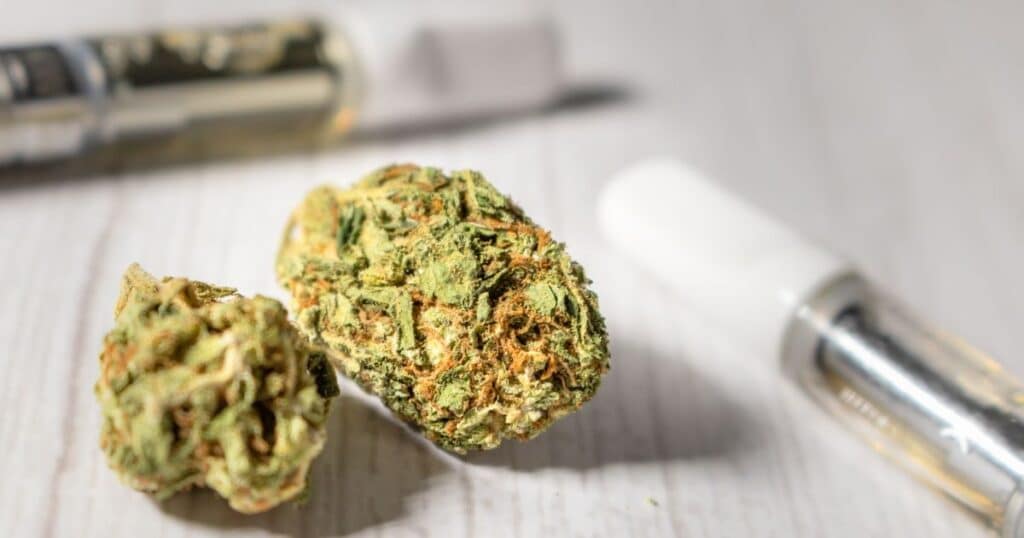The California cannabis industry is heavily regulated by the state’s Department of Cannabis Control (DCC), which oversees all licensing, testing, and enforcement for legal cannabis products. Recently, the DCC issued an embargo and recall on products from three companies due to concerns of potential contamination or “adulteration” or products as reported by SF Gate.
This rare move by the DCC highlights the importance of ensuring public safety in the cannabis industry and raises questions about transparency and accountability within the regulatory system. So, it is important for every consumer to be aware of these notices being made public as it directly impacts their health and well-being.

Safety testing is a critical aspect of the legal cannabis industry in California. All licensed products are required to undergo testing for pesticides, mold, and heavy metals before being sold to consumers. This ensures that products are safe for consumption and do not pose any risks to public health. These tests are conducted by third-party laboratories approved by the state, and their results play a crucial role in determining whether a product can be sold or not. The rigorous testing process is necessary to maintain the integrity of the legal cannabis market and protect consumers from potential harm.
Details of the Embargo
On November 9, the DCC issued an embargo on three cannabis products from different companies: Shark Bite Pacific Chemistry pre-rolls, West Coast Cure Biscotti disposable vape pens, and Cru Cannabis Mai Tai disposable vape pens. These products were already being sold in dispensaries across the state when the embargo was announced, raising concerns about the accuracy of the original safety tests or possible tampering with the products after testing. The DCC’s letter to the companies stated that the products may be “adulterated,” meaning they have been altered in some way, either intentionally or unintentionally, and could potentially pose health risks to consumers if consumed.
SF Gate obtained and published the names of the affected products as well as their batch ID numbers in the interest of public safety, they go as follows:
- “SHARK BITE – PACIFIC CHEMISTRY” Pre-Rolls from METRC Batch No. 1A406030000465D000001314;
- “WEST COAST CURE – BISCOTTI” Disposable Vape Pens from METRC Batch No. 1A4060300009222000010348;
- “CRU CANNABIS – MAI TAI” Disposable Vape Pens from METRC Batch No. 1A40603000020EC000009978.
“The DCC is currently investigating the facts and circumstances related to these products to determine the appropriate next steps, including whether a recall is necessary,” said David Hafner, a spokesperson for the agency, in an email to SFGATE.
Despite the potential risks to public health, the DCC has not publicly listed the embargoed products on its website or issued a press release about the recall. This lack of transparency raises questions about why the DCC is hesitant to make this information widely available to consumers. Some speculate that it may be due to pressure from large cannabis companies who do not want their products associated with a recall. However, this only highlights the need for greater transparency and accountability within the regulatory system to protect public safety.
Interestingly enough in response to the lack of public disclosure from the DCC, SF Gate took it upon themselves to purchase one of the affected products at a dispensary in San Francisco. They found that despite the embargo being announced to these companies days prior which requires them to immediately stop selling the items and retain them for investigation, one of products was still available for sale on dispensary shelves.
This raises serious concerns about why these products are not being immediately removed from shelves once an embargo has been declared. It also brings into question the effectiveness of the DCC’s enforcement and regulatory processes.
The lack of transparency and slow response from the DCC in regards to this recent embargo and recall raises concerns about the overall safety of legal cannabis products in California. It is important for all notices to be made public record, as it holds companies accountable and informs consumers of potential risks associated with certain products.
The consequences of consuming contaminated or “adulterated” cannabis products can range from minor discomfort to serious health complications, making it crucial for consumers to have access to accurate and timely information. This incident highlights the need for more transparent regulations and better enforcement to ensure the safety of all legal cannabis products in California.
Previous Incidents of Lab Falsification
Unfortunately, this is not the first time that safety tests for legal cannabis products have been called into question in California. False THC percentage numbers have been reported in the past, and some labs have been caught falsifying safety tests altogether.
In 2019, multiple licensed labs were found to be falsifying test results, including one that had its license suspended and another that had its license revoked. These incidents raise concerns about the credibility of safety tests for cannabis products and highlight the need for stricter regulations and consequences for labs found to be falsifying results.
Labs serve as a crucial intermediary between producers and consumers in the legal cannabis market, ensuring that products are accurately labeled and safe for consumption. If labs are not held accountable for their actions, it undermines the entire regulatory system and puts consumers at risk.
Stricter regulations and consequences should be put in place to prevent future incidents of lab falsification and maintain the integrity of the legal cannabis market in California.

Overall, the recent embargo and recall of cannabis products in California highlights the need for greater transparency, accountability, and stricter regulations within the legal cannabis market. It is crucial for all notices to be publicly disclosed to protect public health and inform consumers of potential risks associated with certain products. This incident also sheds light on previous incidents of lab falsification and the need for stricter consequences for labs found to be falsifying results.
Enjoyed that first hit? Come chill with us every week at the Friday Sesh for a freshly packed bowl of the week’s best cannabis news!
















